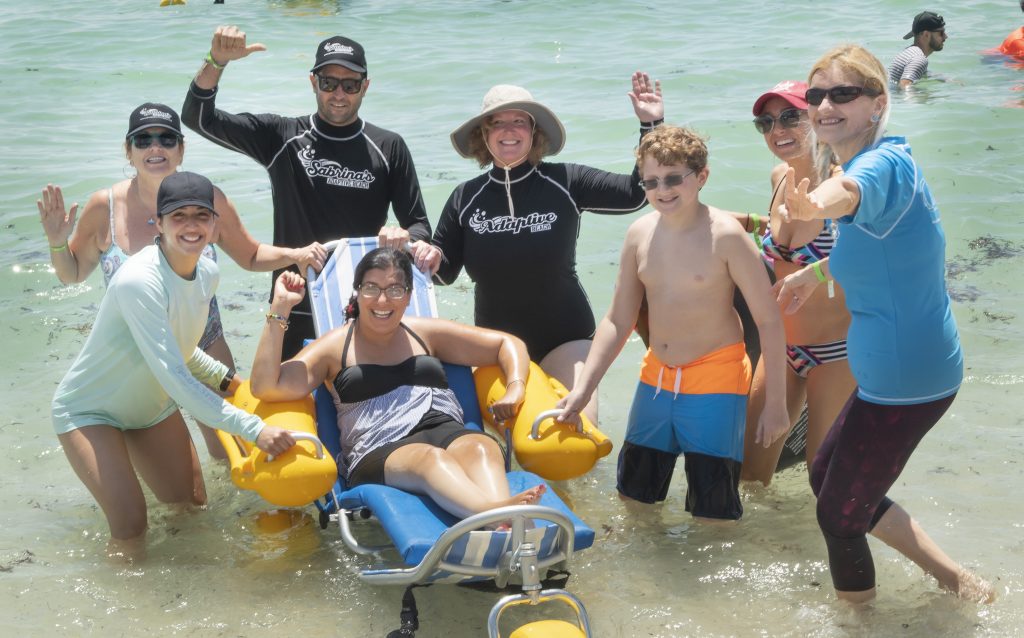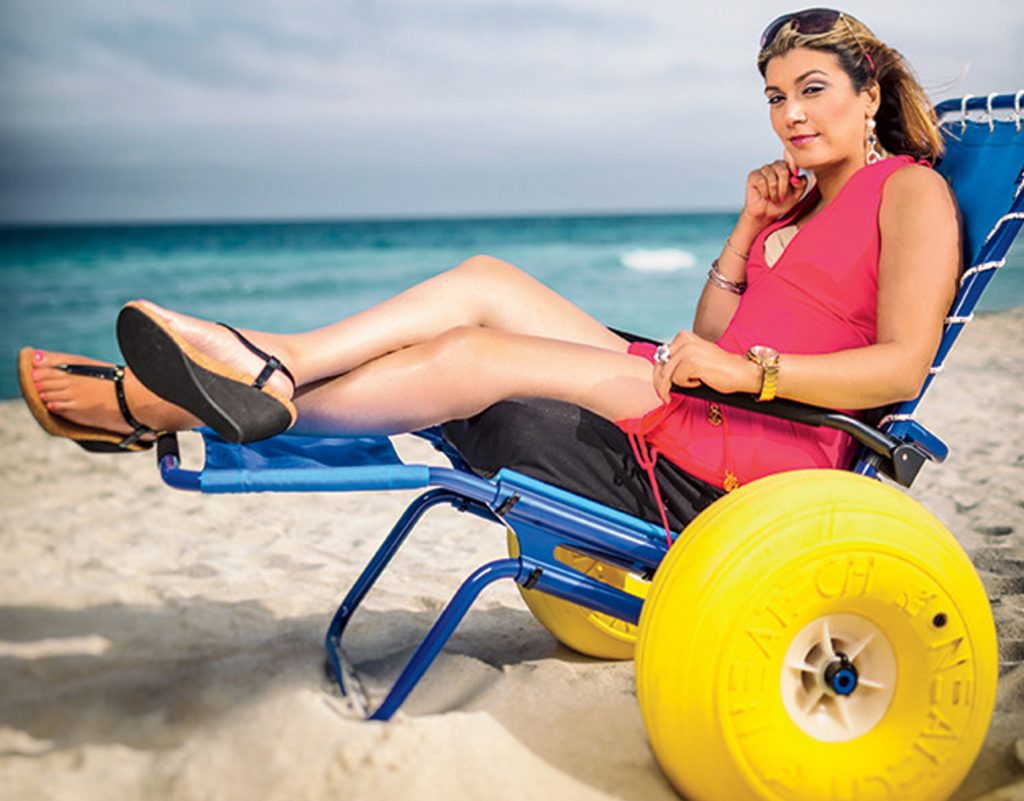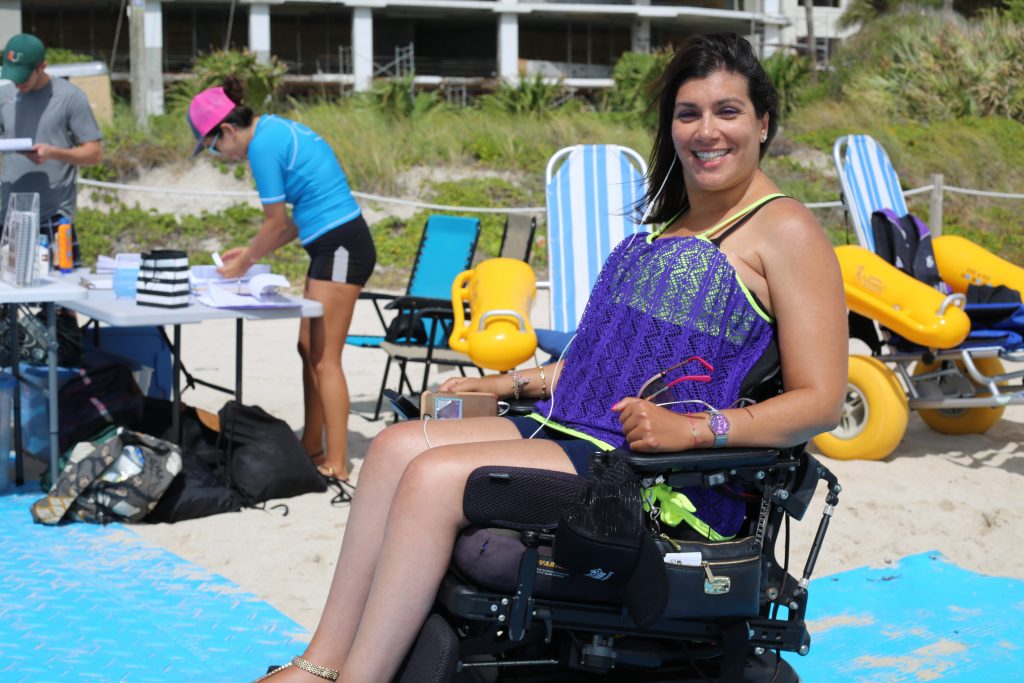October is National Disability Employment Awareness Month
REAL Trends interviewed Sabrina Cohen from Miami Beach, who is an individual with a disability that is thriving as a real estate professional.
Sabrina Cohen, a sales associate with Coldwell Banker Miami Beach, has certainly had her fair share of challenges in life. As 14-year-old, Cohen was in a car accident and in the blink of an eye was paralyzed from the neck down. “I was heading to a party with my best friend. We jumped into a vehicle with friends from high school who were older.
There were six kids in two cars, drag racing and the cars collided. The other five kids walked away,” says Cohen. “It was a drastic, life-changing experience. It’s been 25 years now, and I never quite got over it. I just cope with a very different lifestyle.”
Coping got a lot easier once Cohen found her purpose, developing and creating community programs, including beach access and adaptive sports programs, to those with disabilities.
 Adaptive Beach Day with the Sabrina Cohen Foundation on June 3rd, 2018 held on the beach at the 64th Street Park near 64th St. and Collins Avenue in the North Beach area of Miami Beach. Photo by MagicalPhotos.com / Mitchell Zachs
Adaptive Beach Day with the Sabrina Cohen Foundation on June 3rd, 2018 held on the beach at the 64th Street Park near 64th St. and Collins Avenue in the North Beach area of Miami Beach. Photo by MagicalPhotos.com / Mitchell Zachs
“I look at all the good work I’ve done over the years, and I’ve realized that is the purpose in my life. I wake up with enthusiasm and, every day, I look forward to giving back,” says Cohen, who adds that the car accident brought her this opportunity.
That good work includes founding the Sabrina Cohen Foundation (sabrinacohenfoundation.org) in 2006 which allowed her to create a fully accessible beach in Miami Beach. “I’m working on a huge campaign to build our nation’s first adaptive recreation center. It will accommodate both ocean access and adaptive fitness with a fully universal design and a team of specialized individuals.” Realogy recently recognized Cohen for her efforts with a $6,000 grant for her foundation.
Her work with individuals and families through the Foundation saw her fielding calls from those looking for a home that was accessible. “I saw a gap that no one was filling, so I got my real estate license in 2016,” she says.
She says that many real estate sales associates think they aren’t equipped to help those with disabilities, but, “My advice is that you have to ask questions to get to know them and their needs. Don’t make assumptions. They’ll tell you what you need to know to put you on the right path.”
When it comes to serving those with disabilities, Cohen said there are other misconceptions as well. For example, she notes, many people assume disabled people can’t live independently. “That’s not true, they just need places that accommodate what they need, like easy access to a restroom and shower, parking that accommodates larger vehicles and open floor plans,” she says.
“Another misconception is that someone in a wheelchair can only live on the ground floor.” Cohen wants people to realize that those with disabilities can have a job, drive and more. “We are people like everyone else; we just have a little extra load on our shoulders.”
More likely, she says, real estate professionals aren’t sure how to find homes that are accessible, because Cohen herself has problems doing so. “It’s so frustrating because the MLS doesn’t include accessible features, so I have to go through the photos looking for wider doorways, roll-in showers, parking spaces and more. I have to go through tons of listings, but I won’t know for sure until I visit the home,” she says.
 “When my wheelchair got stuck in the sand, I realized that communities could do more to accommodate their members. That’s why I spent so much time opening the first ADA (Americans With Disabilities Act)-approved area on the beach. It was a powerful moment when we were able to activate spaces otherwise underused and allow people a better quality of lives.” —Sabrina Cohen
“When my wheelchair got stuck in the sand, I realized that communities could do more to accommodate their members. That’s why I spent so much time opening the first ADA (Americans With Disabilities Act)-approved area on the beach. It was a powerful moment when we were able to activate spaces otherwise underused and allow people a better quality of lives.” —Sabrina Cohen
For Cohen, she plans to continue to inspire people to be open to those with differences. “I hope to inspire a movement where more [real estate] agents are sensitive to the needs of clients above what they’re used to. Instead of thinking of a client with a disability as a by-chance client, consider growing your business by serving this niche, which includes seniors.” Says Cohen, “If we recognize how smart home tech and access can improve someone’s quality of life, our world can change for the better.”




